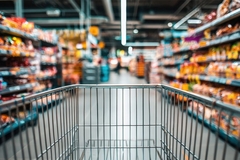
- Industry news
Industry news
- Category news
Category news
- Reports
- Key trends
- Multimedia
Multimedia
- Journal
- Events
- Suppliers
- Home
- Industry news
Industry news
- Category news
Category news
- Reports
- Key trends
- Multimedia
Multimedia
- Events
- Suppliers
Food Manufacturers Promote Best Practice in Energy Efficient Technologies at EU Sustainable Energy Week

"Increasing energy efficiency and reducing greenhouse gas (GHG) emissions are important drivers for improved industrial competitiveness and environmental sustainability. Further promotion of energy efficient technologies, such as CHP (Combined Heat and Power) technology, would help Europe in moving towards a low carbon society’’.

4/14/2011 --- "Increasing energy efficiency and reducing greenhouse gas (GHG) emissions are important drivers for improved industrial competitiveness and environmental sustainability. Further promotion of energy efficient technologies, such as CHP (Combined Heat and Power) technology, would help Europe in moving towards a low carbon society’’. This was the key message from Europe’s food and drink (F&D) industry, the CIAA (Confederation of the food and drink industries of the EU) at the European Union Sustainable Energy Week in Brussels.
Paul Gardiner, Chair of the CIAA Climate Change Working Group, explained how the use of cogeneration (CHP) technology fits into the overall, long-term energy strategy of food manufacturers. Overall, food manufacturers have relatively low energy intensity; however, major differences exist in energy intensities across F&D sub-sectors. As such, important efforts have been made to drive up the economic value of F&D industry output in the EU by over 35% in the last decade to almost €900 billion/year. In the same period (1999-2008), GHG emissions for the industry have declined by 17% (from 37.765g of CO2 equivalent for the EU), reflecting the strong commitment of food operators to continuously improve their energy and carbon management.
The event provided an opportunity to share best practice from across the food industry in Europe - including CHP technology at the Kellogg Company manufacturing plant in Manchester, UK, to reduce CO2 emissions by 12%, and the use of spent coffee beans at the (Nestlé) NESCAFÉ factory in Mainz, Germany, to lower the carbon footprint. An example from CEFS (Comité Européen des Fabricants de Sucre) and British Sugar was cited also, demonstrating the breadth of firms using cogeneration today.
Speaking at the event, Paul Gardiner commented: "The food and drink industry is committed to contributing fully to the policy objectives of the EU on energy and climate change and is undertaking a wide range of activities and investments to cut energy use and greenhouse gas emissions. Cogeneration can play an important role in achieving these objectives".
The event saw high-level speakers attend from the European Commission, the European Parliament as well as representatives from academia and civil society. Co-organised by COGEN Europe (the European Trade Association for the Promotion of Cogeneration) in partnership with CIAA, CEFIC and CEPI (CEFIC: The European Chemical Industry Council; CEPI: Confederation of European Paper Industries), the event registered a successful turnout of participants from across the energy policy spectrum.
Going forward, the CIAA will continue to support, promote and encourage the uptake of CHP technology, where possible, spreading best practice throughout the industry in driving industrial competitiveness while improving the environmental sustainability of Europe’s largest manufacturing industry.










